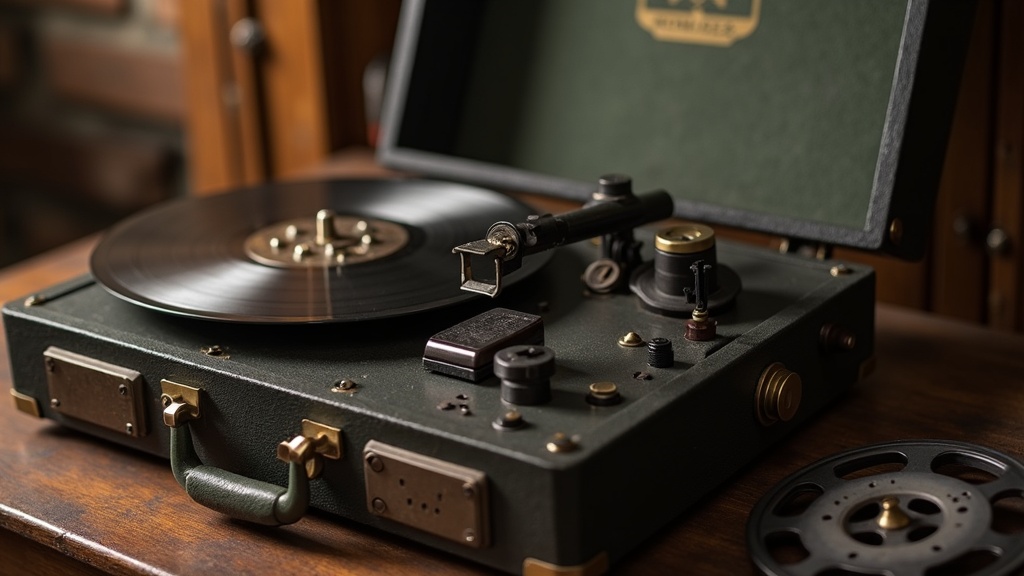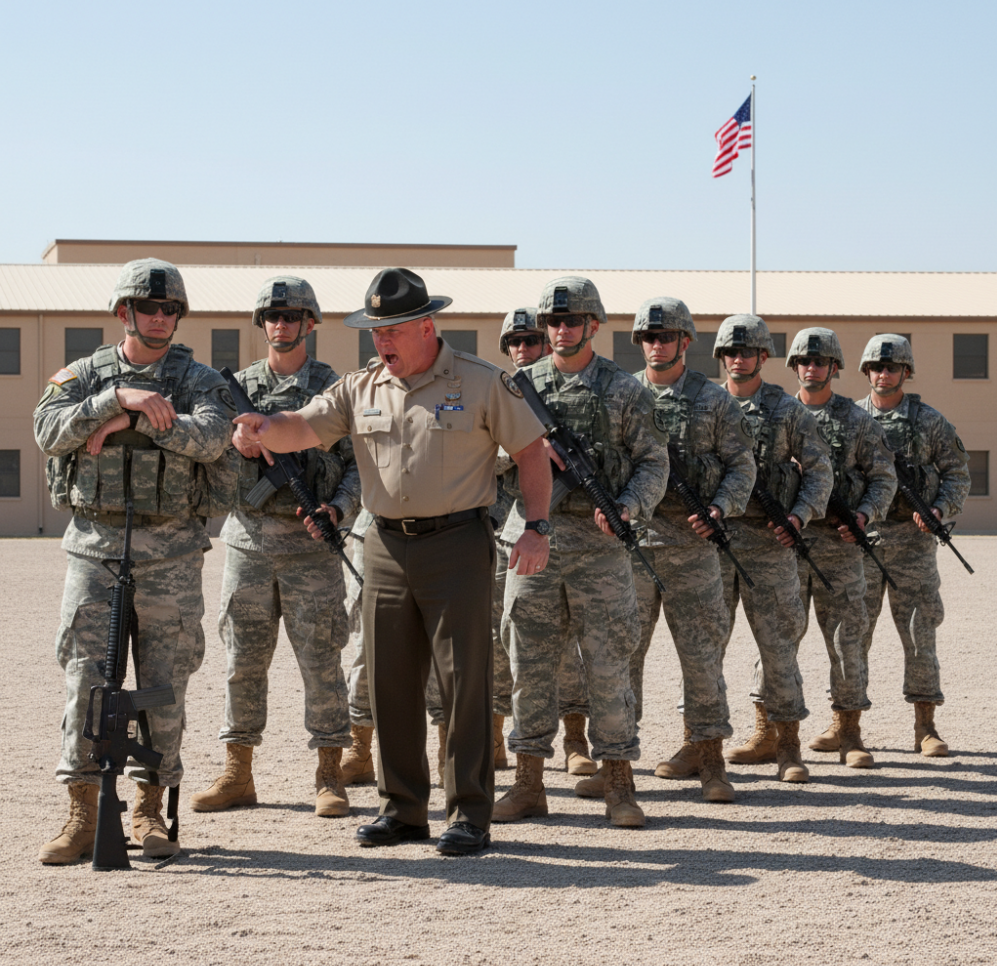Great music in war movies can grab your attention before a single shot is fired. Whether it’s a moving orchestral score or a swinging big band tune, the right soundtrack always adds extra punch to the story. Music does more than fill the background; it’s often the emotional heartbeat of a film. In this article, I’ll check out some unforgettable sounds from war movies, from classic anthems to catchy songs that lifted spirits during tough times.
I’ve been enjoying a lot of great inspiring music during this Veterans Day holiday, and I would love to hear your thoughts about your favorite music from a war movie.

The Role of Music in War Movies
Music in war films shapes how we connect with the story. From pounding drums to gentle strings, composers use every tool available to build tension, hope, or even a touch of hopefulness amid chaos. Even if you haven’t noticed, the sounds behind the action often frame how you remember the scene, from heart-thumping battle moments to aching scenes of loss.
Movie studios have known for a long time that a carefully chosen song or score can help audiences relate to historical periods or military experiences. You might recognize a movie by its music just as much as by its cast of characters or one-liners. For many, the soundtrack lives on long after the credits roll. Music can guide the mood, letting you know whether a moment is triumphant, tragic, or filled with suspense.
Standout War Movie Scores
War movie scores do a lot of heavy lifting. These pieces are written specifically to match the tone or setting of a film, and some have even become famous on their own.
- John Williams’ “Saving Private Ryan” score: Williams used slow, reflective music that mirrors the heartbreak and heroism in the story. The theme “Hymn to the Fallen” is both sorrowful and powerful, making you feel the sacrifice and humanity at the heart of the film.
- Hans Zimmer’s “Dunkirk” soundtrack: Zimmer played with the ticking of clocks and rising tension, echoing the urgency and uncertainty of the real-life events. The music pushes the suspense higher, right up to the final moments.
- Jerry Goldsmith’s “Patton” march: This iconic horn section captures the pride, eccentricity, and military energy of General Patton. The tune sticks with you, even if you’ve only seen the movie once.
- James Horner’s “Glory” soundtrack: Filled with moving choral arrangements, Horner’s music deeply reflects the bravery and struggles of the Civil War soldiers depicted in the film.
These scores are worth a listen even outside the films, and they pop up all the time in documentaries, games, and even sports events. Many fans even add their favorite movie soundtracks to study or workout playlists, showing how the emotional drive of these compositions connects across contexts.
Swing, Jazz, and Big Band Music: The Andrews Sisters
No conversation about war movie music is complete without talking about the Andrews Sisters. During World War II, their upbeat, energetic songs were everywhere; on the radio, in USO shows, and in countless war-related films. Tunes like “Boogie Woogie Bugle Boy,” “Don’t Sit Under the Apple Tree,” and “Rum and Coca-Cola” instantly bring to mind the era of the 1940s.
The sisters’ harmonies and catchy melodies offered a much-needed boost to soldiers and civilians alike. Their music is still used today in films to instantly transport audiences back to World War II. Any time you hear one of their songs in a movie, you know exactly when and where the story takes place. Their voices work as a quick shortcut to nostalgia, helping even younger viewers get a feel for the mood of the time.
Patriotic Anthems in Movies
Patriotic songs aren’t just played during parades or on the Fourth of July. In war movies you’ll often hear classic American anthems, military marches, and even foreign patriotic tunes. “The Star-Spangled Banner,” “America the Beautiful,” and “The Battle Hymn of the Republic” regularly fill the soundtrack in stories about military life and sacrifice.
Composers sometimes give these old standards a soft, somber flair, or turn up their volume for big battle or victory scenes. You’ll also find national anthems in movies about other countries, highlighting the universal power of music to rally or comfort people during war. Even subtle hints of familiar tunes can stir emotions and tie personal memories to events happening onscreen. There is a lot of feeling in these traditional anthems, and I have often been moved to hears when I hear these songs.
Popular Songs Used in War Movies
Not every great war movie track is a classical arrangement. Sometimes, filmmakers use popular songs from the era they’re depicting, or even songs that contrast with the action, to pack an extra punch.
- “Fortunate Son” by Creedence Clearwater Revival: This protest song shows up in tons of Vietnam War movies. Its gritty rock vibe helps paint the sense of chaos and rebellion of the time.
- “White Cliffs of Dover” by Vera Lynn: Serving as an unofficial anthem of hope for the British during WWII, this gentle ballad underlines scenes of longing and resilience in several war films.
- “Ride of the Valkyries” from Wagner: Famously used in “Apocalypse Now,” this classical piece turns a helicopter assault into an unforgettable, almost surreal, moment.
- “We’ll Meet Again” by Vera Lynn: This classic tune comes up in several war movies and documentaries, its hopeful message making it a favorite farewell or ending song.
Sometimes, the choice of song is meant to say something about the story—a bit of irony, a twist of emotion, or a way to tie the story back to real-life history. These deliberate song selections often stay with viewers, creating memorable associations between lyrics and cinematic moments.
Comedic Takes: Abbott and Costello’s World War II Movies
Not every war movie is deadly serious, and sometimes a lighter touch helps keep viewers entertained. Abbott and Costello produced several films during WWII full of slapstick, misunderstandings, and sight gags. Movies like “Buck Privates” and “In the Navy” still make people smile today.

Do you remember a scene like this in Buck Privates?
What really sticks with audiences is the catchy music woven into these comedies. “Buck Privates” features the Andrews Sisters, blending comedy, music, and military life all in one. These musical breaks lighten the mood and poke a little fun at military life, while never losing sight of the era’s realities.
It’s interesting how comedy and music teamed up in these films; the familiar songs became anchors that let the jokes land without making light of the true hardships soldiers faced. This careful balance kept morale high both at home and overseas.
Common Challenges When Using Music in War Films
Choosing music for war movies is not just about picking a great tune. There are practical and creative hurdles to clear.
- Authenticity: Filmmakers work hard to choose era-appropriate music. Getting it wrong can pull viewers out of the moment. It’s always worth double-checking if a song was even around during the time being depicted.
- Copyright Issues: Obtaining the rights to use a famous song can be expensive and time-consuming.
- Balancing Tone: Too much music or the wrong type can overwhelm a serious story. Directors and composers have to decide when to let silence speak instead.
Authenticity in Music Choices
Filmmakers who want audiences to really feel like they’re in the past pay close attention to musical details. They seek out the right instruments, recordings, and even performance styles; for example, a 1940s dance scene might play an original recording by The Glenn Miller Orchestra to give it a truly vintage feel. Soundtrack experts might even use historically accurate microphones and recording techniques for extra realism.
Licensing and Budgeting
Music licensing costs sometimes lead filmmakers to pick less expensive alternatives or create “soundalike” tracks. Large productions usually have more options, while indie films get creative with unknown or public domain music. Sometimes, composers are hired to write new pieces that sound like the era in question, blending originality with a nod to history.
Setting the Right Mood
Music isn’t always nonstop in war movies. Sometimes, silence or natural sounds communicate more than any orchestral score could. Knowing when to stay quiet is just as important as knowing when to go big with music. Films like “1917” and “The Thin Red Line” use silence and subtle sound design to let emotions simmer beneath the surface, giving more weight to the music when it does appear.
Practical Tips for Enjoying War Movie Music
If you want to get the most out of war movie soundtracks, here are some things I really recommend:
- Try listening to a movie’s soundtrack on its own. It’s amazing how much fresh detail you’ll hear.
- Check out behind-the-scenes documentaries or interviews with composers for extra insights into why certain music was chosen.
- Make a playlist of your favorite tracks and see how they fit together outside of the film.
- Read up on the historical background of songs featured in films to boost your appreciation for their use and context.
Frequently Asked Questions
Question: Why do war movies use so many old songs?
Answer: Old songs help create a believable atmosphere, transport people to another era, and remind viewers of the music that soldiers and civilians actually heard during wartime. Plus, these tunes anchor the story in real history and make scenes more authentic.
Question: What is the most famous song from a war movie?
Answer: “Boogie Woogie Bugle Boy” by the Andrews Sisters is one of the most instantly recognizable, but there are also scores like “Hymn to the Fallen” from “Saving Private Ryan” that are just as impactful. Other songs, such as “We’ll Meet Again,” have also left a big mark because of their emotional depth and historical context.
Question: Why is music so important in war films?
Answer: Music helps anchor the story in a time and place, boosts the emotional impact, and can even provide relief in tense or sad scenes. It brings extra layers of meaning, helping viewers connect more deeply with the film’s characters and themes.
Final Thoughts on War Movie Music
Music in war movies isn’t just about entertainment. It helps tell the story, build connections to real history, and shape strong memories for each new generation of viewers. Whether you’re a fan of big orchestra scores, snappy big band tunes, or clever songwriting, digging into war movie music can offer new ways to enjoy both films and history. These unforgettable soundtracks deserve a listen, no matter what your taste or era you prefer—so next time you watch a war movie, take a moment to really notice how the music sets the stage and tells its own powerful story.

Love it! I absolutely feel the transporting flashback to the movie for songs such as for ‘We’ll meet again’, ‘Boogie Woogie Bugle Boy’ and ‘Fortunate Son’ when I hear them now. As far as music goes, the heartbreaking and unforgettable ‘Cavatina’ score played in ‘The Deer Hunter’ is forever etched with my memory of the tragic movie. Thank you. That was fun to read.